Reduction in Paper Use Saves Money and Trees
Beachwood administrators have sought to reduce paper use in recent years, an effort intended to reduce the district’s costs and decrease its environmental impact.
According to Ken Veon, the district’s Director of Curriculum, Technology & Mechanical Systems, the high school has greatly decreased the use of paper.
Whenever possible, teachers are encouraged to post materials to Blackboard instead of making copies for each student.
From the 12-13 school year to the 13-14 school year, [when the one-to-one Chromebook program was implemented] paper was reduced by almost 30,000 copies,” he wrote in an email.
Veon expects further reductions this year.
“From 13-14 to what is projected based on this year’s use, we will have reduced approximately another 60,000 copies,” he wrote. “That means we [expect a two-year reduction] from almost 500,000 copies at the high school before the Chromebooks to 410,000 [this year].”
“I believe as teachers and students become more comfortable with the use of technology, we will continue to see a reduction in copies,” he wrote.
Students have also contributed to the efforts to reduce the district’s environmental impact.
According to science teacher and ecology club adviser Lisa Bugenske, the club members have collected 1433 lbs. of paper for recycling during the first quarter of the school year. This means that BHS has saved 2.22 cubic yards of landfill space.
Each high school staff member can make up to 5000 copies in the building, according to library assistant Paige Dudley.
Teachers are discouraged from exceeding this amount on the high school copiers, and have long been encouraged to send larger jobs to the district copy machines at the board office, which are more efficient and cost effective.
Since last year, teachers have also been discouraged from sending too many large jobs to the board office.
“We were told at the beginning of last year that they wanted to start phasing out the bulky packets,” English teacher Todd Butler said.
In turn, teachers are reminding students not to lose their packets.
Some teachers have concerns that the emphasis on saving paper may affect student learning.
“[Unit packets] are not just wasted pages,” English teacher Casey Matthews said. “They are the backbone of our curriculum. Copying assignment packets is cheaper than buying updated textbooks for each class.”
Matthews and other English teachers feel that students can use active reading strategies more effectively with paper text.
“It seems as though we make a lot of copies; however, that’s what we use to teach,” Matthews said. “It’s not wasted or in vain for us.”
Sophomore Maya Granot prefers reading paper text to online.
“It lets me get away from the technology that teenagers obsess over,” she said.
Sophomore Kyle Schlessinger agrees that he can focus better with paper text.
Senior Matt Komich, however, prefers reading online text.
“It is much more convenient,” he said.
In addition to posting assignments and articles on Blackboard, the district is also moving towards e-textbooks.
According to Treasurer Michele Mills, e-textbooks cost much less than regular textbooks.
“The difference in cost between electronic and regular textbooks varies by subject, title and publisher,” she wrote. “Electronic textbooks may cost 25-75% less than a traditional hardcover book.”
Mills also says that posting things electronically is an easy way to save paper.
“We are ultimately trying to avoid creating recycled items,” she wrote. “We are trying to urge staff to make fewer copies and to post on Blackboard. For example, we ask teachers to post their syllabi online so students can access electronically rather than print a piece of paper… Not only does this save money for the district, but it is better for our environment.”
Mills identified other ways that the district has cut paper use. Employees are either on direct deposit or pay cards. This has reduced mailing and postage costs.
“Our postage costs are less than they were 10 years ago,” Mills wrote in an email. “It also reduces the use of paper… Postage expenses in 2000 were $42,727 when first class postage was 33 cents. In 2012, postage expense was $29,462 and in 2014 it was $13,605 when first class postage was 49 cents.”
According to Mills the total amount of money saved by the school in the two years of paper reduction is hard to quantify, because cost varies by product.
“We have implemented environmentally-friendly lighting systems in our schools,” she wrote. “We received rebates from the Illuminating Co. and reduced our electricity costs $10-12 thousand per year. While not recycling per se, it is cost avoidance. The bulbs we use have to be replaced less frequently, so they aren’t disposed of as often. It saves time for our staff, as well as the cost of buying more bulbs and electricity.”
Mills added that catalytic converters were added to the buses to reduce emissions. This also helped improve fuel efficiency on the buses.
With the increasing use of technology, a higher electricity bill may be expected. But Mills says that increased electricity costs are not necessarily caused by the introduction of the Chromebooks.
“We cannot attribute increased electricity costs to the laptops,” she wrote. “The high school is now air conditioned, which it wasn’t in the past. Also, we had a very cold winter last year. Electricity increases as well as natural gas costs in harsh winters. Last year our electric bill was $280,098 for the high school and the year before it was $240,532.”
Mills feels that the benefits of conserving resources are more than just cost savings.
“Other than economic benefits, recycling is the right thing to do, to reduce our carbon footprint and benefit the environment to preserve for future generations,” she wrote. “I personally am an avid recycler. Small things add up.”
Ecology club member Jasmine Baduria would love to see the district do even more to reduce our school’s environmental impact.
“Besides recycling we can reduce the use of electricity that we [use] as well as water,” she said.
Baduria said she joined the ecology club because the future of the planet is important to her.
“Let’s all help make the Earth a fresh and clean place,” she said.
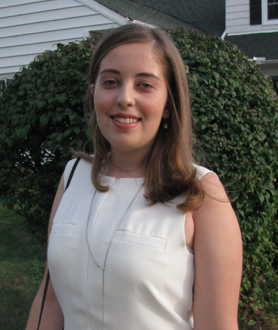
Senior Dalia Zullig had been the Online Editor-in-Chief for three years and is now the Editor-in-Chief. She enjoys writing features the most and runs...



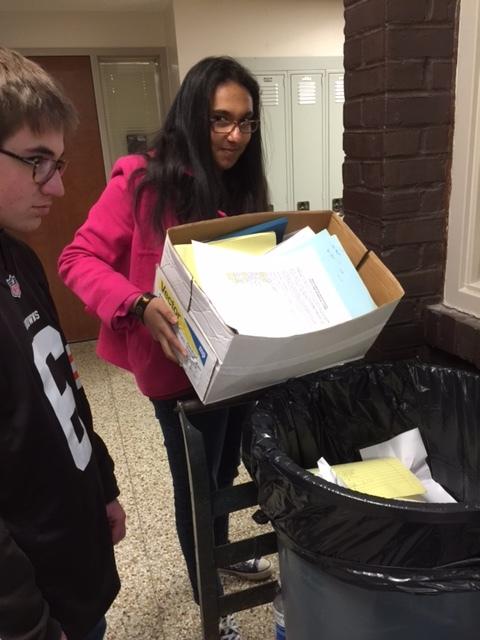
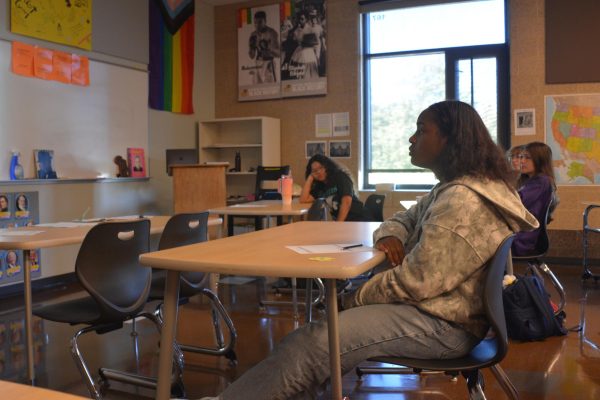

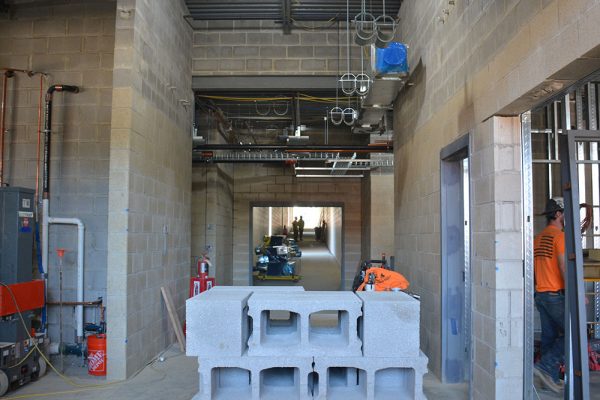
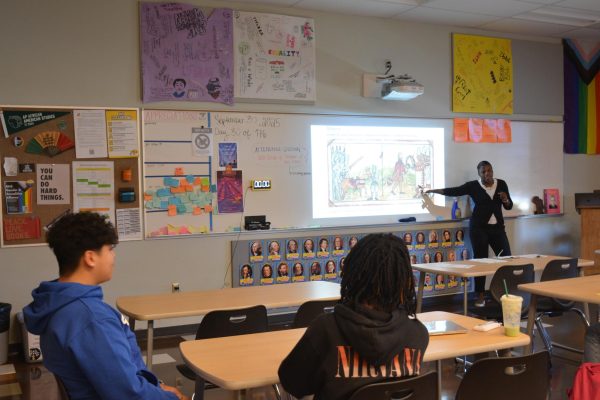
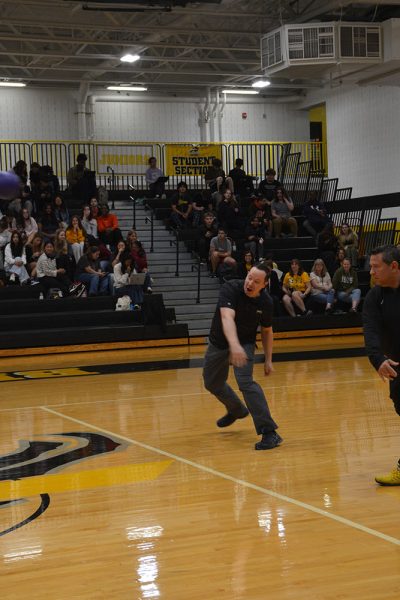
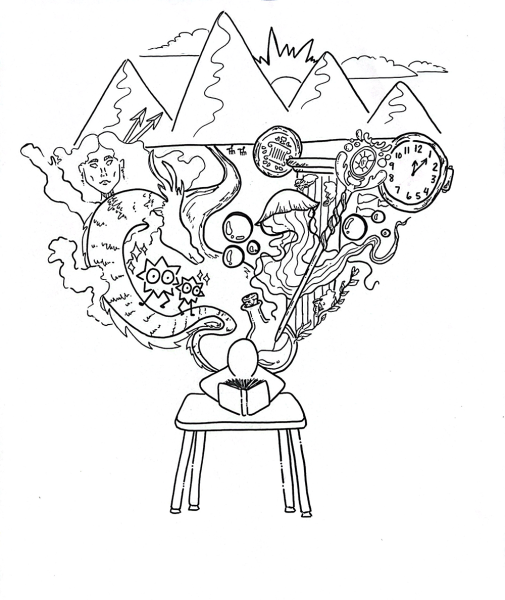
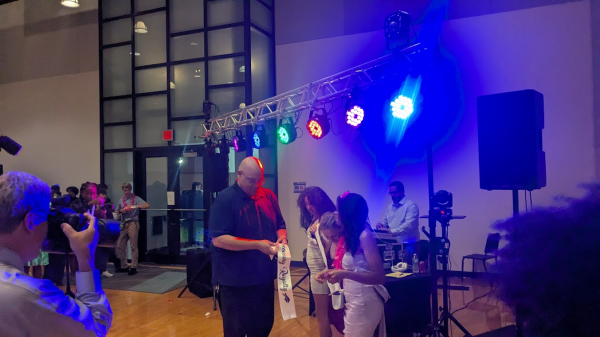


Jonathon Shapiro • Dec 18, 2014 at 12:52 AM
While I appreciate the concern for saving money, there are better ways to do so than (what is effectively) a moratorium on using paper in the classroom. Countless studies have come out showing that paper and pencil is really the only way to learn (See: Scientific American on June 3, 2014).